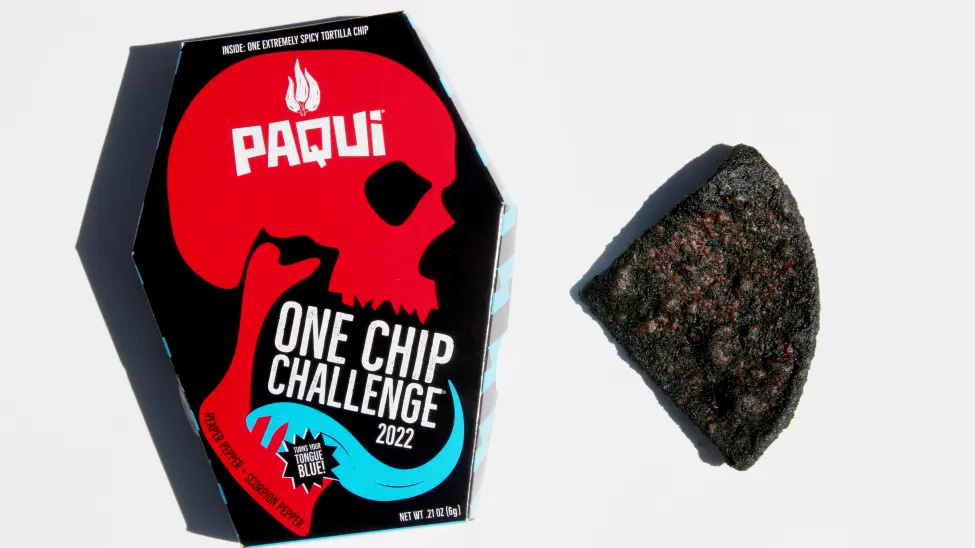The One Chip Challenge: A Fatal Game That Raises Questions on Corporate Ethics and Social Media Responsibility
A lawsuit filed against Southern Regional Medical Center reveals a harrowing account of a baby's alleged decapitation during childbirth.
Do the difficult things while they are easy and do the great things while they are small. A journey of a thousand miles must begin with a single step.
In a world where viral challenges often dictate social media trends, the line between harmless fun and dangerous recklessness has become increasingly blurred. The tragic death of 14-year-old Harris Wolobah from Worcester, Massachusetts, who participated in the One Chip Challenge, serves as a grim reminder of the potential consequences of such internet phenomena. This article aims to dissect the various facets of this tragic incident, from corporate ethics to social media responsibility and the role of parents and educators in guiding the younger generation.
Harris Wolobah, a promising young basketball player, decided to partake in the One Chip Challenge, a viral dare that involves consuming an extremely spicy tortilla chip and enduring the heat without relief. The challenge turned fatal for Harris, who lost his life shortly after consuming the chip. The incident has led to an outpouring of grief and has raised several questions about the ethics and responsibilities of various stakeholders involved.
The One Chip Challenge is a viral trend that dares participants to eat a single tortilla chip laced with Carolina Reaper pepper, one of the spiciest peppers in the world. The challenge is to endure the intense heat for as long as possible without consuming any food or water. Videos of participants struggling through the challenge have flooded social media platforms, particularly TikTok, where the hashtag #OneChipChallenge has garnered millions of views.

The chip is produced by Texas-based snack company Paqui, a subsidiary of The Hershey Company. Following Harris's death, Paqui issued a statement expressing their sorrow and announced that they have asked retailers to stop selling the individually wrapped chips. However, this reactive measure begs the question: Shouldn't there have been proactive steps to ensure the product's safety in the first place?
Medical professionals have long warned about the risks associated with consuming extremely spicy foods. Capsaicin, the active component in chili peppers, can cause a range of health issues, from digestive problems to cardiovascular complications. In extreme cases, as seen with Harris, it can even lead to death.
Social media platforms like TikTok have played a significant role in popularizing the One Chip Challenge. While these platforms have community guidelines that prohibit content promoting dangerous activities, the enforcement of these rules is often inconsistent. This raises questions about the accountability of social media companies in preventing the spread of harmful trends.
The incident also shines a light on the role of parents and educators in guiding young people. While it's easy to blame social media and corporations, parents and schools have a part to play in educating children about the potential risks of viral challenges.
The packaging of the One Chip Challenge does include a warning label stating that it is not for children. However, when a product has the potential to be fatal, is a warning label sufficient? This incident could serve as a precedent for future legal actions against companies that produce potentially hazardous products.
As the community mourns the loss of Harris Wolobah, authorities in Massachusetts have issued warnings about the dangers of the One Chip Challenge. Vigils are being organized to remember Harris and to raise awareness about the risks involved in participating in such challenges.
The tragic death of Harris Wolobah serves as a wake-up call for society. It's high time we scrutinize the ethics of viral challenges and the responsibility of corporations and social media platforms in promoting them. As consumers and citizens, we must also take it upon ourselves to be more discerning and to educate the younger generation about the potential risks of seemingly harmless internet trends.
Disclaimer: Some information on this site may be considered attorney advertising under your state’s laws and ethical rules. This legal news site and its content are for general information and not legal advice. Information on this site may be incomplete or out-of-date.
No attorney-client relationship is created between you and any attorney who publishes content or online forms on this site. Hiring a lawyer is an important decision that should not be based solely on advertisements.
Mom quits her corporate job, now works just 5 hours a week and earns over $120,000!
This Week is Packed with Incredible Tales of Business, Finance, and AI Successes: Moms, You'll Love This! Earning Passive Income: The Inspiring Journey of a Mom **Mom says goodbye to her job, now works just 5 hours a week and brings home $120,000 annually!**





